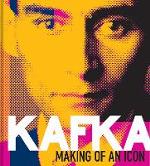Franz Kafka died in 1924, when he was not yet forty-one. During his life he published only seven small books, but he left behind three unfinished novels and a mass of stories, reflections and personal writings which were published after his death. His novels in particular, alongside short stories such as The Judgement and The Metamorphosis , have made him one of the most widely read, significant and influential writers of the twentieth century. His writings show an extraordinary ability to speak to the changing concerns of later generations. This collection of essays, illustrated with manuscripts, archival material, postcards and family photographs, not only sets Kafka in the context of his life and times but also shows how his own experiences nourished his imagination. Literal travel in Western Europe enabled him, as his notebooks reveal, to practise descriptive writing. Imaginative travel through reading strengthened his fascination with remote spaces and made him aware of European colonialism. Familiar settings in his fiction become alien and bewildering. When writing about animals, he sought to enter imaginatively into their non-human way of being. This book is a celebration not just of Kafka’s achievements and creativity, but also of how — even 100 years after his death — Kafka continues to inspire new literary, theatrical and cinematic creations around the world.

Kafka : making of an icon
ISBN: 9781851246229
Format: Hardback
Publisher: Bodleian Library (ADS)
Origin: GB
Release Date: August, 2024


